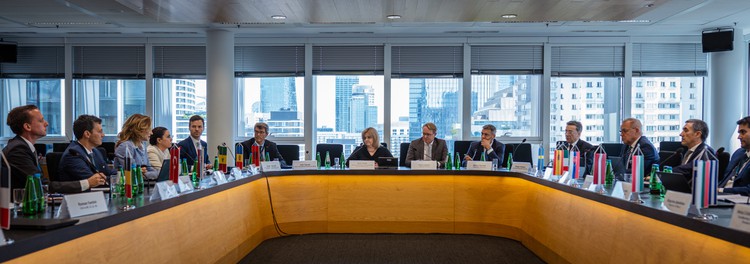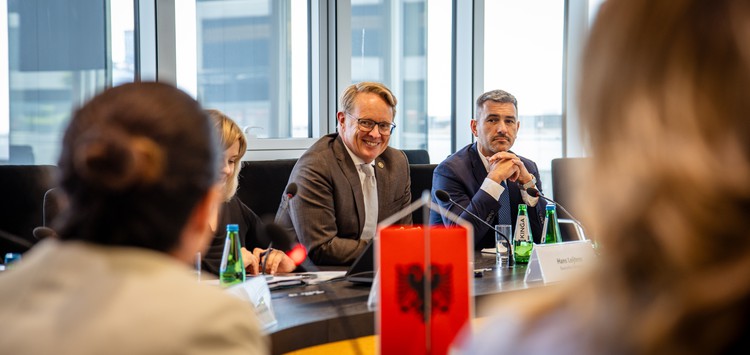Nearly twenty Frontex Liaison Officers (FLOs) have arrived to Frontex headquarters in Warsaw to take part in a week-long information and exchange session. Liaison officers are Frontex’s points of contact with the national authorities in the EU and non-EU countries. Once a year, they meet to discuss and evaluate their work, network with experts from the Agency and learn about the new policies and priorities to enhance the cooperation with respective national authorities.
News
Frontex Liaison Officers meet in Warsaw
2024-06-21

This year’s meeting, which was first and foremost practical in nature, received full attention of Frontex management. Frontex Liaison Officers met with the Executive Director Hans Leijtens and two Deputy Executive Directors. All of them expressed the Agency’s full commitment to bringing the partnership with the Member States to a higher level.
At the welcome session, Hans Leijtens set out a clear direction for the Agency and for the FLOs:
'We want to develop a new concept of partnership with the EU and non-EU countries where we are present. Instead of being a supplier of resources, we want to become their partner standing by their side. We want to talk about solutions and capabilities instead of resources only. It is an important shift in our dialogue – from what the country wants to what it really needs. This way, the Agency gains a better understanding of the challenges and the needs and can offer tangible solutions to the existing or arising problems.’
Hans Leijtens highlighted that Frontex has the ambition to remain in constant dialogue with its national partners not only to support them in their daily border management but also to offer professional and fast response to their border and coast guard-related needs.

Particular attention was given to Frontex’s new structure, which was recently introduced to match the new reality of the Agency’s growing responsibilities and operations with the aim of offering services that are better suited to the operational realities and requests originating from the Member States. The role of liaison officers is in this sense strategic, as they are Frontex’s first interlocutors on a day-to-day basis.
Liaison officers play also an important role in supporting and building a general law enforcement culture, which is extremely important for any uniformed agency. Their knowledge of the local conditions and direct experience of the field is of exceptional value for the situational awareness today but, equally important, for the prognostic and sound programming of future developments.
‘We have to invest in our border and coast guard business not only today but also in the future,’ continued the Executive Director. ‘Innovation and research should be made an important pillar of our activities and one of our priorities. We count on Frontex Liaison Officers to learn about the novel, innovation-driven programmes, which are the main drivers for the law enforcement community to act in the now and prepare for tomorrow.’
Apart from the official meetings, the participants have also had a chance to meet Frontex fundamental rights monitors, analysts dealing with risk and vulnerability assessments, as well as policy experts who briefed them on key developments, including the new Pact on Migration and Asylum. The Pact will affect not only how the Member States organise their migration and asylum policies but will also result in significant new tasks and procedures for the Agency. In this complex environment, the FLOs can offer invaluable support to the entire Agency and build additional bridges with the hosting national authorities.